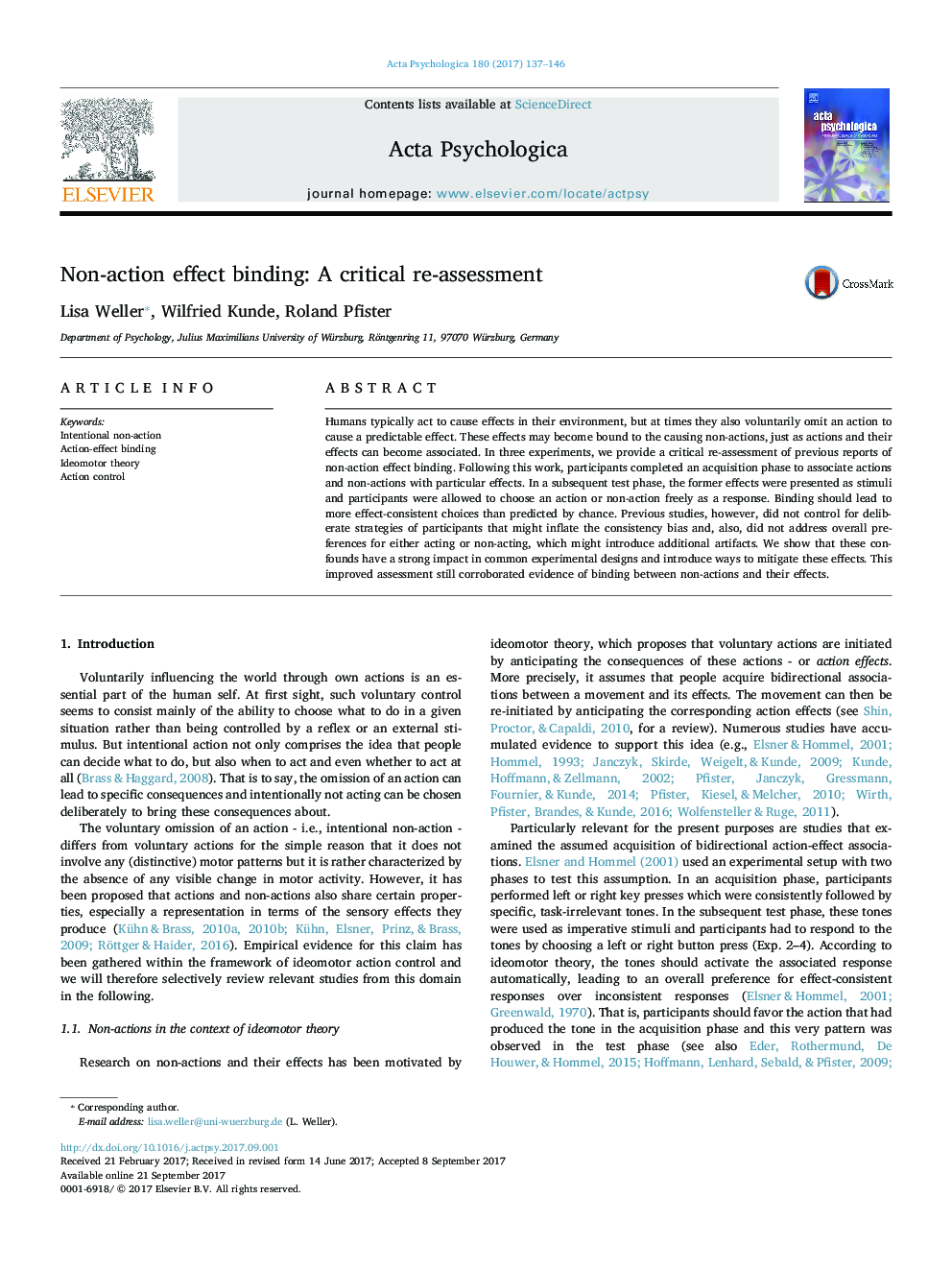| Article ID | Journal | Published Year | Pages | File Type |
|---|---|---|---|---|
| 5040191 | Acta Psychologica | 2017 | 10 Pages |
â¢Voluntarily omitting an action can cause specific, subsequent effects.â¢Such non-actions can become bound to their effects.â¢Previous studies did not control confounds such as strategic responding.â¢We propose and test ways to mitigate these confounds.â¢The improved assessment corroborated evidence for non-action effect binding.
Humans typically act to cause effects in their environment, but at times they also voluntarily omit an action to cause a predictable effect. These effects may become bound to the causing non-actions, just as actions and their effects can become associated. In three experiments, we provide a critical re-assessment of previous reports of non-action effect binding. Following this work, participants completed an acquisition phase to associate actions and non-actions with particular effects. In a subsequent test phase, the former effects were presented as stimuli and participants were allowed to choose an action or non-action freely as a response. Binding should lead to more effect-consistent choices than predicted by chance. Previous studies, however, did not control for deliberate strategies of participants that might inflate the consistency bias and, also, did not address overall preferences for either acting or non-acting, which might introduce additional artifacts. We show that these confounds have a strong impact in common experimental designs and introduce ways to mitigate these effects. This improved assessment still corroborated evidence of binding between non-actions and their effects.
